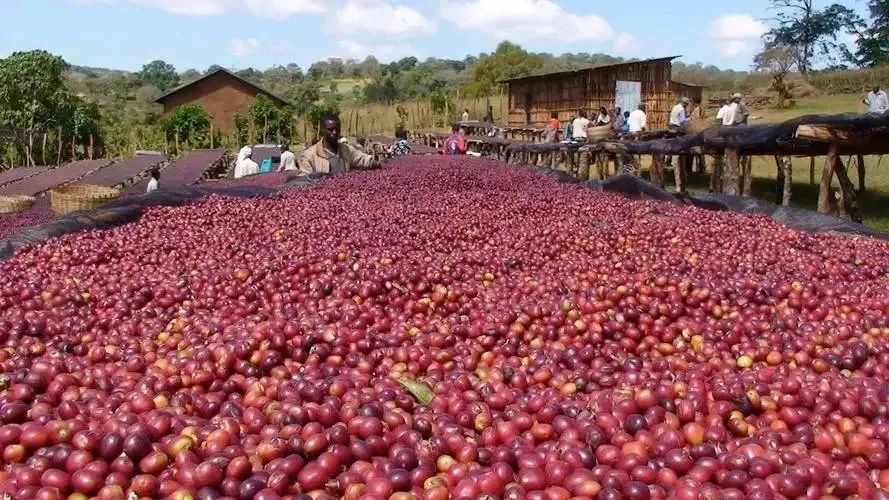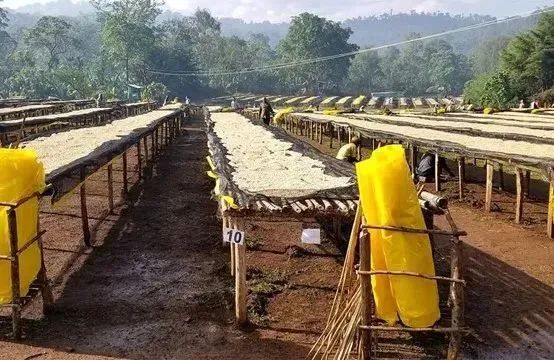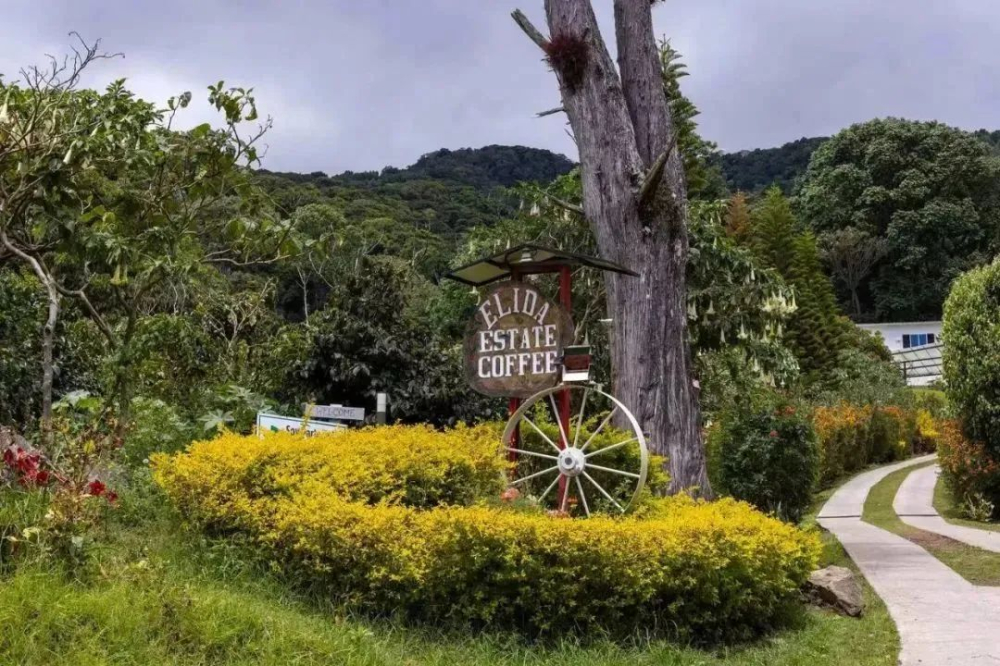What's the difference between a coffee farm and a coffee cooperative?
At present, there are two most common planting patterns in the coffee industry, namely, manors and cooperatives.
The cooperative has gathered a group of farmers who, as individuals, have limited funds, do not have enough capacity and resources to work independently, and may even be unable to negotiate with exporters or bean bakers because of insufficient production, so they join forces to jointly purchase equipment and facilities to form a small coffee processing facility.

Farmers send their coffee fruits here, which are sorted, processed and sold in the name of the cooperative. After receiving the profit, the coffee selling cooperative will deduct the operating expenses and distribute the money to individual members. Cooperatives, as a collective, have more advantages in negotiating coffee prices, in which farmers share resources, take advantage of marketing and business opportunities, and gain sales opportunities.

In cooperatives, although coffee is still the property of farmers, cooperative management makes most of the decisions on the processing and sale of coffee. Individual farmers may have a say, but they cannot independently decide how to process their own coffee, nor can they determine the sale price.

The coffee farm is a larger private farm than the cooperative member farm, the producer has more dominance, and the farm only produces, processes and sells its own coffee. The establishment of the manor needs to invest a lot of production and processing equipment, at the same time need to rely on their own resources to solve materials, funds, planting methods and other problems, but also need to manage their own production and labor costs in the later stage.

Some coffee-producing countries require permits to operate manors. The requirements for registration licenses vary from place to place, but they usually include a minimum number of coffee trees, acreage and total output.

At present, many manors belong to the family business model, which is taken over by the younger generation, and the manor owners can completely control, study, improve and apply new methods of coffee production and processing, which brings value-added effect to their own coffee beans. Moreover, the owner of the manor can directly connect with the raw bean merchant of coffee, can understand the needs of customers more quickly and make changes, and can choose different prices for coffee, but the manor does not have as many members' support as the cooperative. The producers of the manor must handle all economic affairs on their own, "bear their own losses and profits", and bear more pressure while having autonomy.
Disclaimer: some of the pictures in this article come from the network, and some of the contents of the website, such as pictures, we will respect the origin of the original copyright, but due to the large number, there will be individual pictures and texts not in time to indicate, please forgive me. If the original author has any disputes can contact the website to deal with, once verified, we will immediately correct, by "Ka comment vdailycom" collation and editing, reprint please indicate, this article is intended to spread coffee culture, if infringement, please inform to delete, thank you ~!

Important Notice :
前街咖啡 FrontStreet Coffee has moved to new addredd:
FrontStreet Coffee Address: 315,Donghua East Road,GuangZhou
Tel:020 38364473
- Prev

In order to prevent whoring, should coffee shops set up consumption seats?
▲ Click to follow | Daily boutique Coffee Culture Magazine Coffee Workshop recently, some coffee shop owners posted messages on social platforms, debating whether they need to set up a sign for consumption in the coffee shop. The reason is that they often encounter guests who sit down without ordering and begin to take photos. There are few seats in the shop, and there are only about a dozen full seats.
- Next

Will it taste better if you scrape off the concentrated quality? It is said that American coffee will taste better without Italian concentrated fat.
About the fat of espresso, we often discuss it. For example, how to observe the concentrated state through concentrated oil, or how to infer the roasting time of coffee beans from it. Because, it will be called by most people as the soul core of espresso, and it is so. But... Sometimes.
Related
- What is the difference between Indonesian Sumatra Mantinin coffee and gold Mantinin? How to distinguish between real and fake golden Mantelin coffee?
- What does bypass mean in coffee? Why can hand-brewed coffee and water make it better?
- Unexpected! Ruixing Telunsu lattes use a smoothie machine to foam milk?!
- % Arabia's first store in Henan opens into the village?! Netizen: Thought it was P's
- Does an authentic standard mocha coffee recipe use chocolate sauce or powder? Mocha Latte/Dirty Coffee/Salty Mocha Coffee Recipe Share!
- What is the difference between Vietnam egg coffee and Norway egg coffee? Hand-brewed single product coffee filter paper filter cloth filter flat solution!
- What is the difference between sun-cured and honey-treated coffee? What are the differences in the flavor characteristics of sun-honey coffee?
- How to make Italian latte! How much milk does a standard latte use/what should the ratio of coffee to milk be?
- How to make butter American/butter latte/butter Dirty coffee? Is hand-brewed coffee good with butter?
- Is Dirty the cold version of Australian White? What is the difference between dirty coffee/decent coffee and Australian white espresso?

